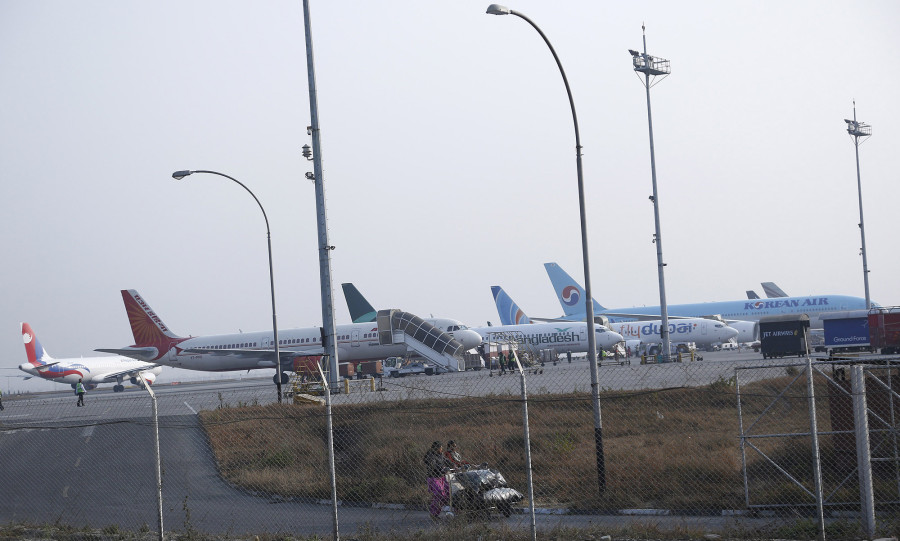National
US State Department report pokes holes in security at country’s only international airport
The report could be a catalyst for the Nepali security apparatus to dig deeper and deal with any potential threats, analysts say.
Binod Ghimire
A new report by the United States describing lapses in security at Tribhuvan International Airport and tying them to claims that Nepal is a staging point for foreign terrorists has, once again, buttressed India’s continuing deployment of its security personnel at the country’s only international airport.
“The airport security controls are weak, inadequate and rudimentary,” says the report, released by the US Department of State on November 1. “Kathmandu’s Tribhuvan International Airport, Nepal’s only international airport, does not pre-screen passengers and landing data are not entered into any database.”
Even though Kathmandu airport’s security has been called into question for years, a major lapse was exposed after an Indian Airlines flight to Delhi was hijacked by Harkat-ul-Mujahideen, a Pakistan-based terror group, on December 24, 1999.
Since then, the Indian government has been flying in sky marshals, who are commandos from the National Security Guard. Indian airlines also conduct their own security checks on passengers before boarding, despite them having gone through a similar procedure conducted by Nepali law enforcement officials.
The new US State Department report says that Nepal has become a playing ground for the Indian Mujahedeen (IM), an Indian terrorist group. “IM has also expanded its area of operations into Nepal, which is now the biggest hub for IM operatives,” reads the report.
Security analysts say that agencies in Nepal should consider the report a source of information and dig further to find out the severity of the threat.
“The report has given a clue and it is the duty of our security forces to verify it,” Binoj Basnyat, a retired major general of the Nepal Army, told the Post. “There is no doubt that a lot needs to be done to strengthen our security at the international airport and the open border.”
Basnyat said that while the country’s security apparatus does need upgrading in terms of human resource, technology and existing laws, such reports lend credence to those who have constantly been raising questions over airport security.
Political parties have often condemned the fact that Indian marshals are allowed to conduct their own security checks at Nepal’s airport. However, no party has taken up the issue with India when in power.
Geja Sharma Wagle, who writes often on security issues, said that the US concerns over airport security are valid as various incidents have suggested lapses.
“Not just the US, even India has been raising valid security issues at our international airport. Though the issue has been raised time and often, successive governments have failed to fix them,” he told the Post.
India, in September last year, increased the number of sky marshals on Kathmandu flights, especially from Delhi, saying intelligence agencies indicated threats, including a possible hijack attempt.
Government officials admit that there is a need for security upgradation but rebuffed the report, saying security at the airport is not as bad as it has been presented by the US.
“We are putting in all efforts to upgrade security controls. We are introducing a biometric system and increasing screening,” Ram Chandra Tiwari, director at the Immigration Department, told the Post. “Our works will speak for themselves.”
Some experts said that while it is always good to remain alert, reports like the one by the US State Department should come up with concrete proof to establish their claims.
“It would have been better had the report provided instances that prove the Indian Mujahideen’s presence in Nepal,” said Indra Adhikari, author of Military and Democracy in Nepal. “There is no reason to disagree that we have security challenges but whether Nepal has actually become a hub for the Indian Mujahideen needs to be established.”
According to Adhikari, the Nepal government needs to speak with the American side to find out the facts behind their claim.
Wagle agreed with Adhikari, saying that no country is free from the threat of terrorism.
“I personally don’t think the Indian Mujahideen’s threat is as serious as it is made out to be in the report,” he said.




 13.12°C Kathmandu
13.12°C Kathmandu














